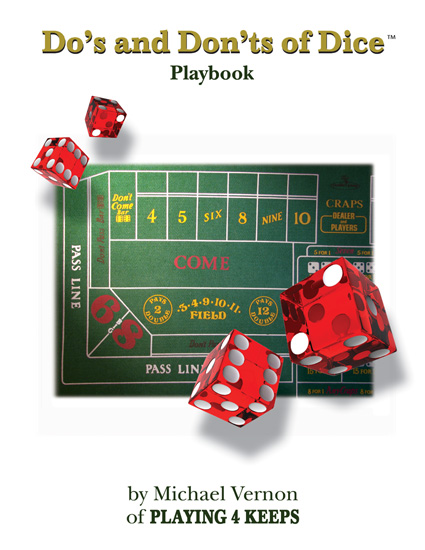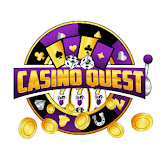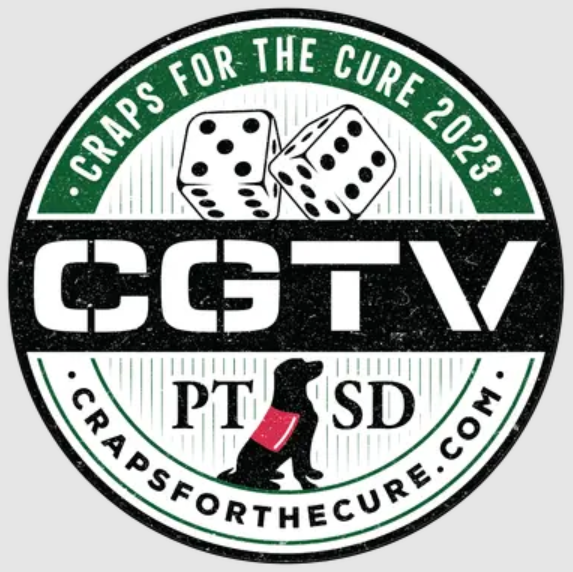|
Break Energy
BY: Michael Vernon
It does not matter if it is blackjack or dice, both games develop a rhythm or pattern. It is those times when we catch a streak of winning hands that the rhythm really is noticeable. Everything is going so well, just before the wheels fall off, and the streak suddenly ends.
So, what happened, and is there anything you can do about it?
What happened may have been the result of what I call break energy. Here's an example. Think of break energy as being similar to a speaker who is interrupted in the middle of a lecture. They stop for the interruption and then, after losing their train of thought, they can't continue with their talk. The stream of consciousness was abruptly broken. The speaker was separated from the present moment during their speech and crashed into a new reality or awareness, due to the interruption. Where was I?
Here are a few examples in the game of blackjack when break energy can occur.
You are playing a good game. You are pulling the hands and the "Break Dealer" shows up to tap out your benefactor for twenty minutes. The break dealer stops the game and shuffles the cards. Suddenly, the game goes downhill as the interim dealer plucks off your stack of cheques provided by the previous dealer. And you thought they were called break dealers because they gave the table dealer a break?
A chip-fill arrives at your table and the game stops while the croupier accounts for the delivery of cheques to the table. The game resumes, but the cards have gone cold.
A new player or two join your table. Their buy-in interrupts the game. The exchange of money stalls the game and breaks the energy. Also, with additional players, the rhythm of the game is affected. The pace of the game shifts and the good thing you had going, before the interruption, is long gone.
The pit boss stops the game to introduce new cards to the table. This sometimes has no influence, but if you were doing well with the old cards and the new cards "mistreat" you, then this is a break in the energy.
Disagreements during a game are particularly disruptive to the flow of the energy. This is especially true if the pit boss must intervene to referee. This game is over for sure.
Any other disruption or action that causes the game to stop, stall, or otherwise breaks the rhythm is a warning sign to be on the alert, and perhaps to be looking for the exit.
Sometimes breaks in the energy at a crap table are referred to as superstitions. I am not superstitious. Some breaks are similar to that of a blackjack game, chip-fills, buy-ins, changing the dice. Usually a change of dealers is not much of a concern unless there is an attitude problem with a particular dealer. I have observed a few jerks masquerading as crap dealers that really messed with the energy.
When a crap game heats up, there is a tendency for the center field bets to get more action. The game slows to a crawl. When so many players are on these bets it interrupts a good roll. Time out is needed as the dealers are either replacing the proposition bets after a roll or they are paying winning bets. Since all the action goes through the stickman, these bets cause the game to stall, losing air speed if you will, and the game crashes. 7-out - line- a-way!
During a good hand beware of the anxious player. Unable to make enough bets and unable to keep track of the bets, this individual requires constant attention from the dealer, who must explain these anxious questions: "What happened to my hard 8? How much do I have on my horn bet? Did you press up my nine? I thought I told you to buy the 4 and 10? Where are the odds for my come bet"? Eventually this player has the boxman cross-eyed and you know the dice have long gone cold. "7 - line down" is the call.
Things are going well in the game. The dice are passing. A new shooter picks up the dice and decides to show off by throwing the dice with vengeful force. One or both dice keep flying off the table. The shooter calls for same dice and the game stops while someone hunts for the lost cube. Frustration and grumbling from the gallery begins, the energy breaks down and it is over for this game.
Because of high emotions, numerous bets, and a fast pace, arguments are more common in a craps game than at the blackjack table. The occurrence of disagreement, when money is involved, is way too volatile and always results in an imbalance within the "force". This disturbance in the energy is irreversible. Color up, it will not recover.
An inexperienced dealer, or a dealer that is not working at the same level as the other dealers will drag on the energy of the game. Like three horses pulling a heavy wagon, the one not pulling their weight causes the other two to work harder and the pace is much slower. The imbalance seems to keep the game out of synch and it is "chop dice" for the night.
A count up by the pit boss and floor supervisor in the middle of a hot hand, I believe is a deliberate act on the casino's part to effect the energy of the game. Often the game is allowed to continue, but just as often the dice are held in front of the boxman while the stacks are called out and recorded. A cool breeze blows across the table and the dice catch a cold.
During a chip fill, the game usually proceeds with the box of chips placed in the middle of the table. This barrier or obstacle usually forces the shooter to change their toss, consciously or unconsciously. Recall my article on "long rolls and consistency" for the toss and placement of the dice. (More info at my blogs, playing4keeps.com.) Too often the "evil one" follows when there is a change in the dice toss or end target. When the dice hit or land at a new position on the table, there is no "maybe, baby". The energy shifts and they are "Out".
You can help yourself by being aware of the many factors that break the energy of a game. However, there is not much you can do to supersede or change it. Never the less, through your awareness of expectation, you have the edge of knowing when to exit a game that is about to fall apart. You do not have to leave the table. You can stop playing for a while to witness whether the "break signal" resulted in what you expected. If you are right, you saved yourself and have the confirmation. If you are wrong, you are still at the table and in position to get back in the game. Worse case, you missed out on a little profit. Best case, you played clever and protected your bankroll. It always comes down to money management in games of chance. It is never wrong to walk with a profit.
Again, do not confuse breaks in the energy of a game with superstitious dice dogma. Play with sensitivity, alert to the subtle messages providing you with advance notice of "things" to come.
Copyright © 2016 Michael Vernon
Click Here to return to the list of prior articles ...
|
 |










